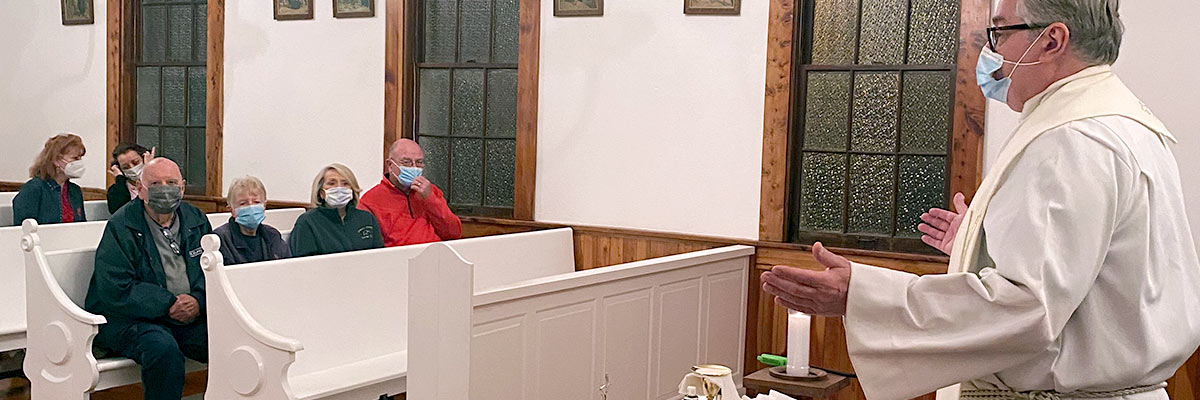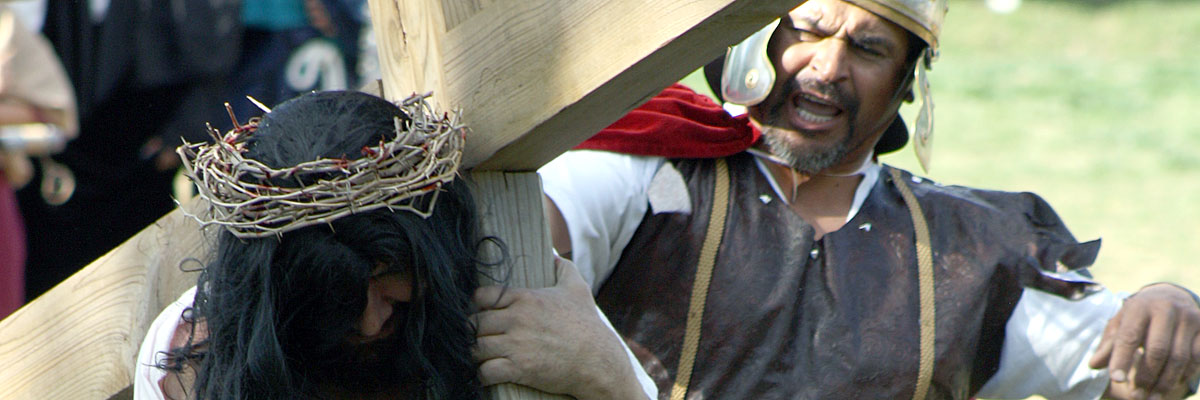Official Website of the
Catholic Diocese of Little Rock
Third Sunday of Advent 2014, Year B
Published: December 14, 2014
Bishop Anthony B. Taylor preached the following homily at St. Theresa Church and the Cathedral of St. Andrew, both in Little Rock, on Sunday, Dec. 14, 2014.
Download MP3 file to your device

Bishop Taylor
One of the funny mistakes children sometimes make is to confuse the messenger with the message. Once when I was a pastor in Oklahoma, a child pointed at me as I entered Mass on Easter Sunday and shouted out at the top of his lungs: "Look Mom, there he is — he's not dead!" He had apparently been in a really sad mood ever since Good Friday.
In the same way, people often confused John the Baptist with his message and so in today's Gospel he addresses their confusion regarding his identity. He begins by telling them who he is not and he says very clearly that he is not the Messiah, whom people were hoping would be a military leader sent by God to throw out the Romans and inaugurate a new golden age of peace and justice.
Nor is he Elijah, at least not according to John. Elijah had been taken up to heaven alive in a fiery chariot and people expected Elijah to return just prior to the coming of this mistakenly expected military Messiah. But even though John the Baptist didn't think he was Elijah returned to earth, in Matthew 11:14 and 17:9-13 Jesus says that John fulfilled, apparently without even knowing it, Malachi's prophecy in the second-to-last verse of the entire Old Testament: "Lo I will send you Elijah the prophet before the day of the Lord comes, the great and terrible day."
Just like in the time of John the Baptist, the path to our true home leads through a desert of repentance and reform.
And finally John said that he also was not the nameless "Prophet" promised by Moses in Deuteronomy 18:15, "A prophet like me (Moses) will the Lord your God raise up for you from among your own kinsmen; to him you shall listen." This prophet promised by Moses was generally understood by people in the first century to just be another way of referring to the long-awaited Messiah, which John knew he was not.
So if John the Baptist is neither the Messiah nor Elijah, who does he think he is? He says he is "a voice crying out in the desert, make straight the way of the Lord." These words in Isaiah 40:3 originally referred to the return to Israel in 537 B.C. of the Jewish exiles from captivity in Babylon.
It was God who brought them home safely through the Syrian desert, God who gave them another chance to build a new life for themselves in the Promised Land, it was God who cleared a path for their unexpected return, it was God who made the road straight (easy) for them.
In a similar way, John says that God has sent him to prepare people for a new return from exile, from captivity to this world of sin and despair to a life of unparalleled freedom in a new Promised Land: the Kingdom of God. Through John, God will once again lead his people home. John knows that God's path to a new life of freedom leads through a desert of repentance and reform, and he knows that his ministry will pave the way for the Promised One who will set them free. As today's Gospel says, John "came for testimony, to testify to the light, so that all might believe through him. He (himself) was not the light, but came to testify to the light."
John the Baptist passes from the scene very early in the New Testament. Indeed, Jesus' own public ministry doesn't even really begin until after John's arrest and martyrdom. But in another way, John's ministry continues even today. The coming of God's Kingdom prepared for by John is an already established but not-yet-fully accomplished reality. God's kingdom is already established through the death and resurrection of Jesus, but is still unfolding in the Church through the ongoing presence and guidance of the Holy Spirit.
And so to the degree that the fullness of God's kingdom has not yet been fully accomplished in our world, to the degree that we still remain exiles in a world that is not our true home, to that same degree you and I are called to continue John's work of preparing the way of the Lord here and now, where so many people are still wandering aimlessly in a moral wasteland of sin and despair.
Just like in the time of John the Baptist, the path to our true home leads through a desert of repentance and reform to a life of unparalleled freedom and happiness in the Kingdom of God. John the Baptist's role was to prepare the path to Jesus for us; our role is to prepare the path to Jesus for others!









